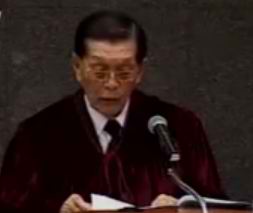By LALA ORDENES
THE Judicial and Bar Council (JBC), in a historic move, decided Monday to allow live coverage of the public interviews of candidates for judicial positions. This means that cameras and tape recorders are now allowed inside the room where the JBC panel interviews candidates for vacant posts in the judiciary and the office of the Ombudsman.
The JBC is the body mandated by the Constitution to submit a list of at least three nominees for judicial posts from which the President will make his choice.
The revised JBC rules will first be applied to the the council’s interviews of candidates for the chief justice position vacated by impeached Chief Justice Renato Corona.
Live coverage for both television and radio had been prohibited by the JBC rules, despite its mandate that the interviews be conducted in public.
Various groups had requested that lifting of the prohibition for greater accountability and transparency in the selection process, but the JBC had remained firm in its decision not to allow live media coverage of the interviews. In 2011, after numerous letters from the Supreme Court Appointments Watch (SCAW), a group that monitors the appointment process to the judiciary, the JBC allowed representatives from SCAW to broadcast their observation in real time via the microblogging site Twitter.
Malacañang welcomed the decision to finally grant media access to the interviews. Presidential Spokesperson Edwin Lacierda said the move is an “important first step in ensuring that our officials are held to the highest standards of competence, integrity, probity, and independence.”
Vincent Lazatin, a member of SCAW, called the move “a victory for transparency at the JBC.”
In a related development, the JBC has extended its self-imposed June 18 deadline for accepting applications and recommendations to the position of Chief Justice to July 2. It also moved its deadline to submit the shortlist of at least three nominees to the President from July 16 to July 30.
The Constitution provides that any vacancy in the Supreme Court shall be filled within 90 days from its occurrence. The decision of the impeachment court removing Corona from office was transmitted to the Supreme Court on May 30.
Lacierda said the extension “will allow the public, civil society, academe, and others to have time to nominate individuals for consideration.”
There are already 40 nominees to the chief justice post as of Monday.
